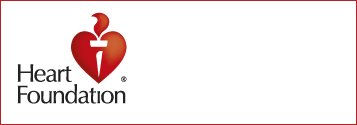Atrial fibrillation
What is atrial fibrillation?
Atrial fibrillation is one of a number of disorders commonly referred to as arrhythmias, where your heart does not beat normally.
Causes of atrial fibrillation
Atrial fibrillation is caused by a disturbance of your heart's electrical system. The problem starts in the upper chambers of your heart (the atria) and causes these chambers to quiver (or fibrillate), rather than beat normally.
This can mean that your heart does not pump blood around your body as efficiently as it should.
Signs and symptoms
It is important to recognise and treat atrial fibrillation. Signs of atrial fibrillation can include:
- a fluttering heartbeat
- an irregular pulse
- weakness
- dizziness.
It also increases your risk of problems caused by blood clots, which can form within the heart’s atria when they aren't beating properly.
Once a blood clot forms in the atria, all or part of it may then break away and travel through your blood stream until it blocks a small artery, potentially cutting off the blood supply to one of the vital organs in your body.
If this happens in one of the blood vessels supplying your brain, it can cause a stroke.
Treatment of atrial fibrillation
Treatments for atrial fibrillation include:
- medicines or procedures to make your heart beat normally (cardioversion)
- long-term medicines to maintain a normal heartbeat, slow your heart rate and/or thin your blood
- surgical procedures, used in rare cases, to try to make your heart beat normally.
The best course of treatment will depend on the:
- severity of symptoms
- cause (if known)
- duration of the problem
- your risk of stroke and other problems caused by blood clots blocking blood supply to the vital organs in your body
- risks associated with each treatment option.
Managing atrial fibrillation
As with other heart conditions the best way to manage your heart health is to recognise and reduce the risks . You should aim to:
- take your medication as prescribed
- be smoke-free
- enjoy healthy eating
- be physically active
- control your blood pressure and cholesterol
- achieve and maintain a healthy body weight
- maintain your psychological and social health
- visit your doctor regularly.
Where to get help
- Always dial triple zero (000) to call an ambulance in a medical emergency
- See your doctor
- Visit healthdirect (external site) or call 1800 022 222
- Phone the Heart Foundation Helpline on 13 11 12
Remember
- Atrial fibrillation is caused by a disturbance of your heart's electrical system. It is a type of arrhythmia.
- There are a number of treatment options for atrial fibrillation but one of the best strategies is to maintain a healthy lifestyle.
This information provided by

Acknowledgements
Heart Foundation
This publication is provided for education and information purposes only. It is not a substitute for professional medical care. Information about a therapy, service, product or treatment does not imply endorsement and is not intended to replace advice from your healthcare professional. Readers should note that over time currency and completeness of the information may change. All users should seek advice from a qualified healthcare professional for a diagnosis and answers to their medical questions.